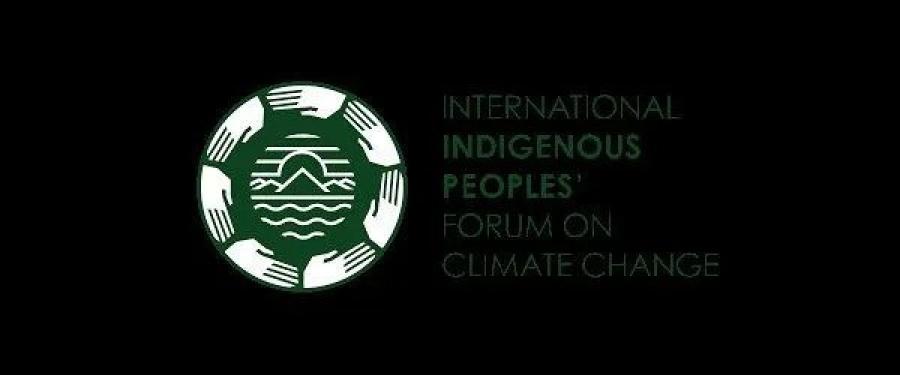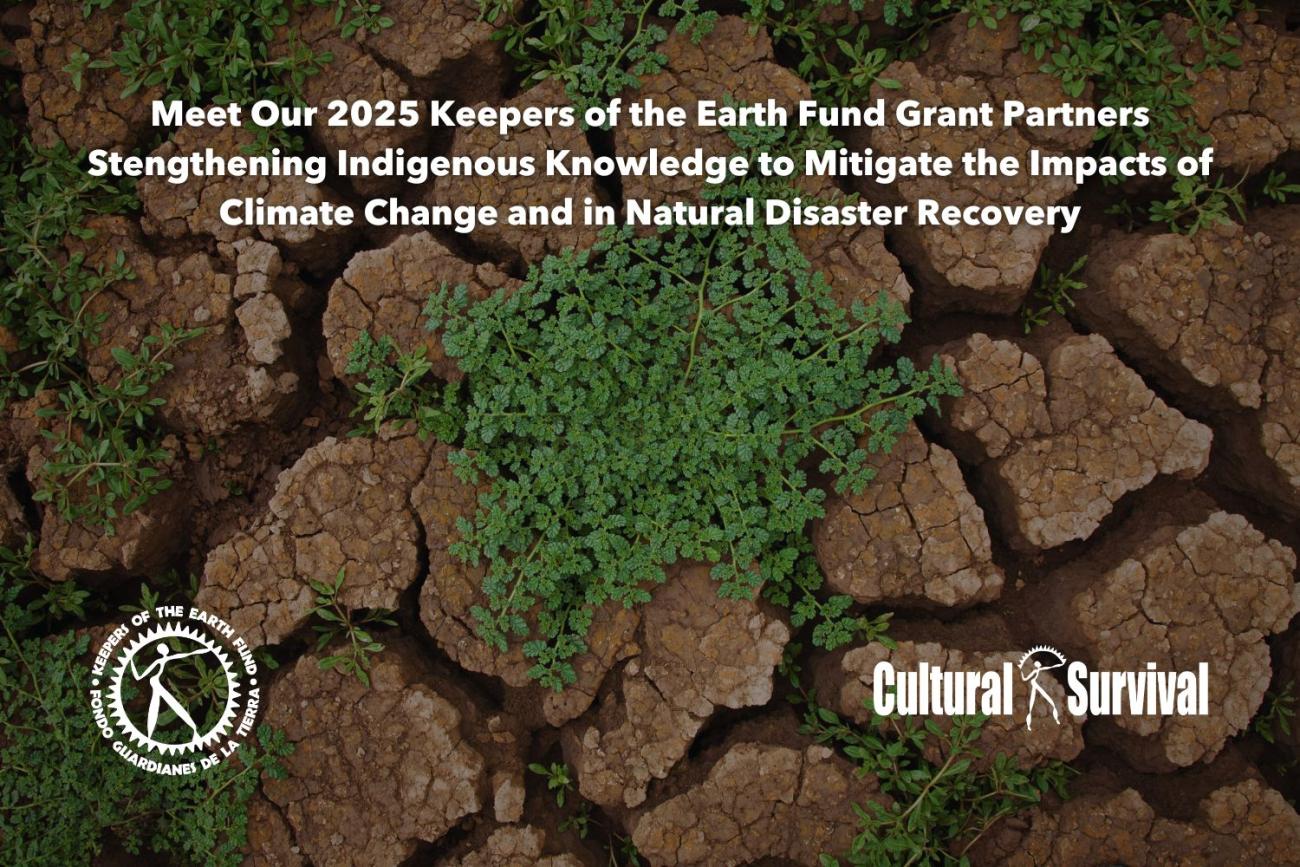
The Keepers of the Earth Fund (KOEF) is proud to announce our 2025 partnerships with Indigenous communities. At Cultural Survival, we value cultivating long-term relationships with our partners.
The Keepers of the Earth Fund is an Indigenous-led fund at Cultural Survival designed to strengthen Indigenous Peoples' advocacy and community development projects globally. Since 2017, we have supported 440 projects in 42 countries through small grants and a wrap-around approach totaling $2,667,147. Grants go directly to Indigenous communities, collectives, organizations, and traditional governments to support projects they designed and in accordance with their Indigenous values. Predicated on the United Nations Declaration on the Rights of Indigenous Peoples, Cultural Survival uses a rights-based approach in our grantmaking strategies to support grassroots Indigenous solutions through the equitable distribution of resources to Indigenous communities.
In 2025, our ninth year of operations, we supported 65 Indigenous projects and collectives for a total amount of $531,000. The funds were sent directly to Indigenous communities, collectives, and grassroots organizations in 26 countries.
Meet our grant partners who are strengthening Indigenous Knowledge to mitigate the impacts of climate change and in natural disaster recovery.
Strengthening Indigenous Knowledge in the Face of Climate Change
Indigenous Peoples are leading their own climate change response. The projects below address climate change adaptation and resilience actions. Some directly address its local impacts through concrete actions guided by their own values, while others explore long-term perspectives that promote reflection, learning, and planning based on Indigenous knowledge, enabling communities to better respond to deforestation, climate change, and biodiversity loss on land and at sea.
Federation of Indigenous Organizations of Napo (FOIN), Kichwa (Ecuador)
As a continuation of the campaign in defense of life and water launched in 2023 by FOIN and other organizations, this project will collect quantitative data by monitoring the Napo River basin and its sub-basins that are affected by mining activity. The monitoring will review sociocultural and environmental aspects with an emphasis on impacts and conflicts. The data will serve as a tool for organizational strengthening related to the defense of Indigenous territories.
National Agrarian Confederation (CNA), Quechua (Peru)
The project proposes to develop workshops to formulate a culturally relevant management plan to address climate change with the participation of community Elders. A demonstration plot will be implemented with various adaptation strategies and involve members of the communities, who will be provided with materials so that they can replicate these practices.
South-South Struggle Coordinator, Bribri, Cabécar, Brörán (Costa Rica)
The project aims to allocate funds across four territories to support community-led environmental and cultural initiatives. Activities include building a storage facility, tree planting events, workshops focused on native species and water resource conservation, and fire prevention trainings.

Comunidad Indígena Santa Rosa del Pueblo Qom, Qom (Paraguay)
Women from the Santa Rosa Indigenous community have been working together since 2012 to improve the quality of life and strengthen women's leadership among the Qom People in Presidente Hayes, Northern Paraguay. The community comprises 100 families who are facing threats to their biodiversity and water access from eucalyptus monoculture biomass extraction. Their project, "Alpi Lañaxá La fuerza de las Mujeres" (The Strength of Women), aims to defend territory and water, strengthen culture and language, teach traditional medicine to youth, reforest with native plants, and conduct intergenerational knowledge exchange workshops.
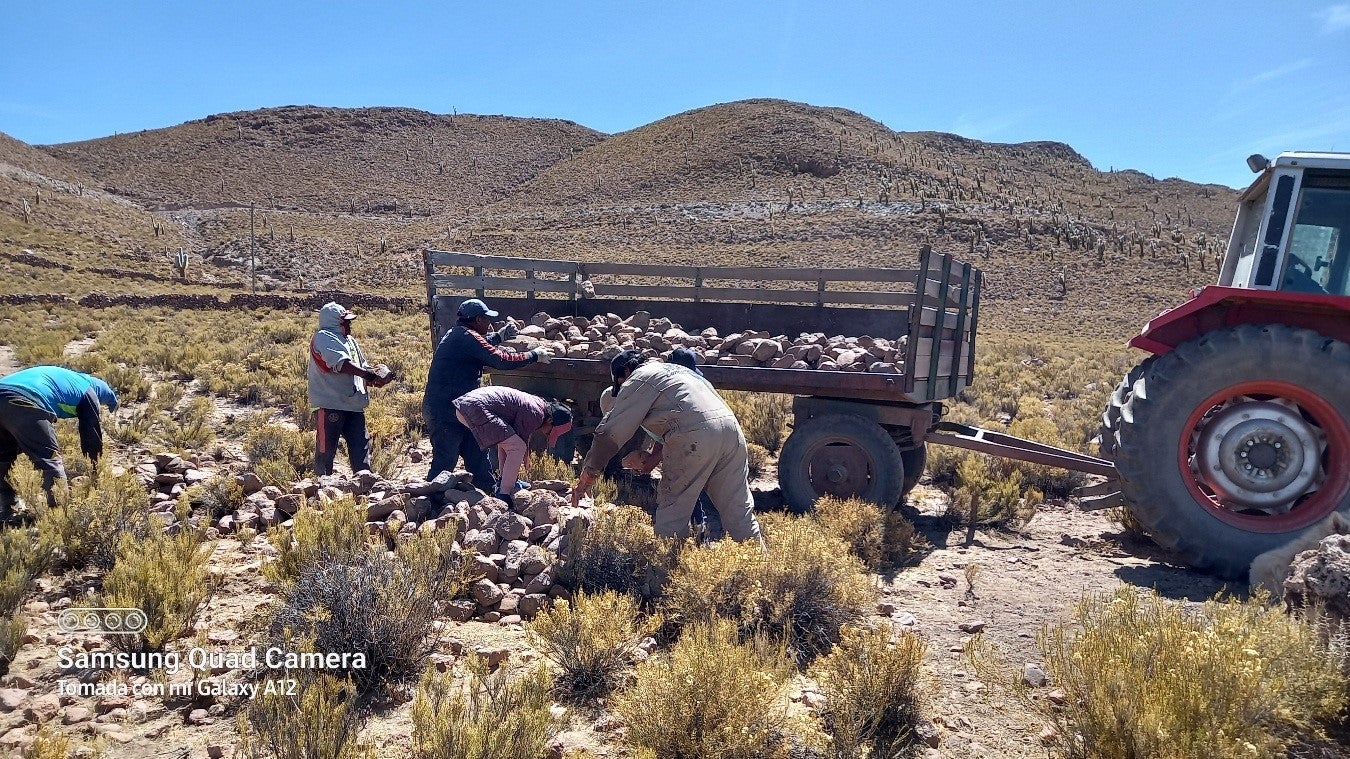
Mañica Indigenous Community, Quechua (Bolivia)
In the Colcha K municipality, flooding during the rainy season has damaged the community's usual water sources. This project proposes the construction of a spillway to redirect water flows in order to steward the water consumed by the community.
Wasapana Dagua Reserve, Amorua, Sikuani (Colombia)
The project seeks to improve the roofs of the houses of the three communities in the Wasapana Dagua Reserve, which, as currently constructed, do not protect the inhabitants from the rains that prevail in the region for a good part of the year. The project includes the purchase and transportation of materials as well as the construction work. A community gathering will also be held.
Irrigation Board of the Communities of San José, San Juan de Barabón, and Inmaculada, Kañari (Ecuador)
Having faced severe drought in 2024, along with massive forest fires and threats from hydroelectric projects, this year’s project, "Sumak Kawsay: Agua Para Nuestros Retoños” (Water for Our Children), aims to implement an autonomous irrigation system. The project will sustain family economies, educate children about water rights and responsibilities, reforest water sources in the paramo ecosystem, and strengthen community solidarity through traditional minka (collective work) practices and pampa mesa (communal meals). It will directly benefit 80 families, maintaining their autonomy from corporate dependency.
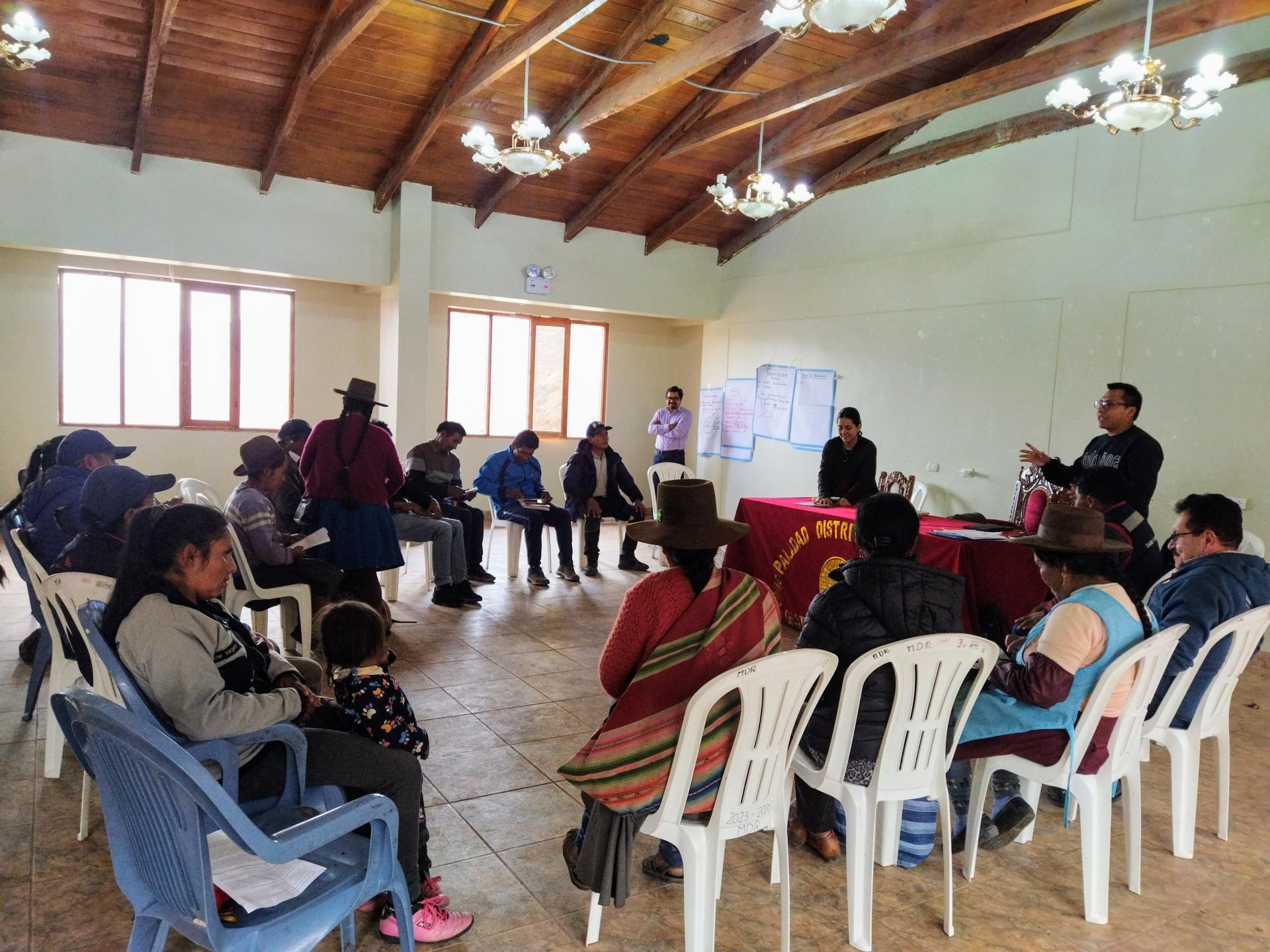
Network of Quechua Indigenous Communicators of the Rondocan District, Quechua (Peru)
The Network of Quechua Indigenous Communicators is made up of Quechua communicators who identify the problem of the loss of ancestral knowledge and wisdom in the face of the adverse effects of climate change, such as changes in wind and rainfall frequency. Their project aims to revalue ancestral knowledge and adopt climate change adaptation measures through an inter-community forum on climate change, communication campaigns, and capacity building.
Natural Disaster Emergency Recovery
In October 2024, KOEF partners in Nepal and Mexico were affected by the consequences of climate change in the form of heavy rains that caused flooding, landslides, crop failures, collapsed houses, and cut-off roads. Our fund allocated small emergency grants so that our partners around Kathmandu, Nepal, and Guerrero, Mexico, could provide support and assistance with basic aid, such as food, emergency housing, and medicine.
Nepali Majhi Mahila Utthan Sangh (NMMUS), Majhi (Nepal)
KOEF funds were used to distribute relief food items to 172 households affected by the floods. Part of the funds were also used to financially support the family of one of the flood victims.
Llano de Heno community, Me´phaa or Tlapaneco (Mexico)
This community in the state of Guerrero suffered crop losses as a result of Hurricane John in 2024. Their project aimed to mitigate food shortages by purchasing corn for affected families.
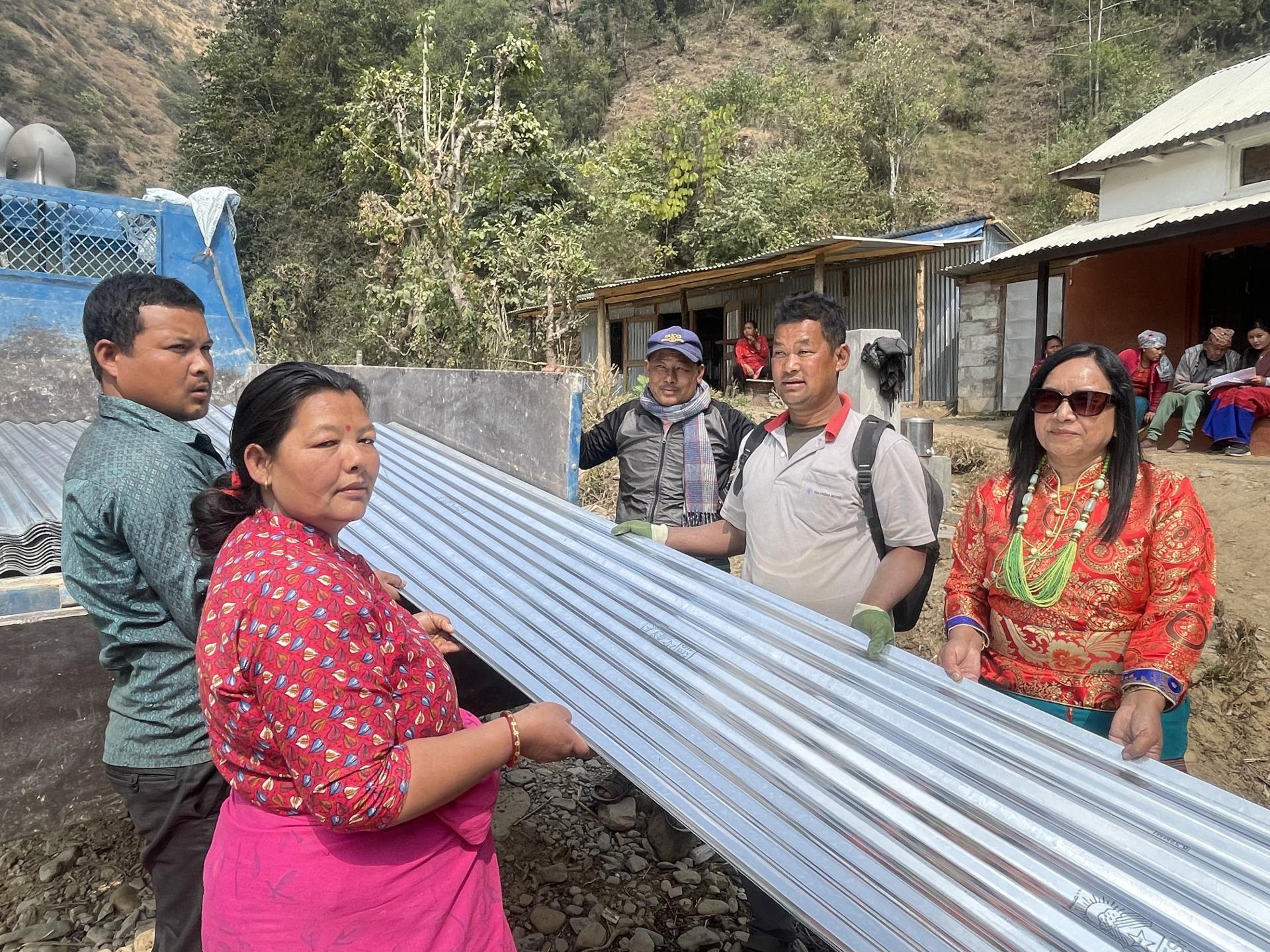
Nepal Tamang Women Ghedung, Tamang (Nepal)
The funds were used to distribute zinc sheets, used to purify water, to families affected by the floods in Nepal in September 2024.
Tilapa Communal Property Commission, Me´phaa or Tlapaneco (Mexico)
The Tilapa community in the state of Guerrero suffered crop losses as a result of Hurricane John in 2024. Their project aimed to mitigate food shortages by purchasing food for affected families.
Sunuwar Women’s Society, Sunuwar (Nepal)
KOEF funds were used for relief after the floods that affected a big portion of Nepal in September 2024, purchasing essential foods and hygiene items, as well as direct support to a family who lost a member to the disaster. Funding will support 77 members of 11 households.
San Lucas Community, Ñuu Savi (Mexico)
The San Lucas community in the state of Guerrero suffered crop losses as a result of Hurricane John in 2024, in addition to other damages. Their project proposed to use the funds to mitigate food shortages by purchasing corn to benefit 200 people in this, and surrounding, communities.
Indigenous Women’s League Nepal, Bote, Majhi, Danuwar, and Chepang (Nepal)
KOEF funds were used for relief after the floods that affected a big portion of Nepal in September 2024. The organization covered food, clothing, temporary shelter, and crop seeds to cultivate the next season, benefiting 29 families.
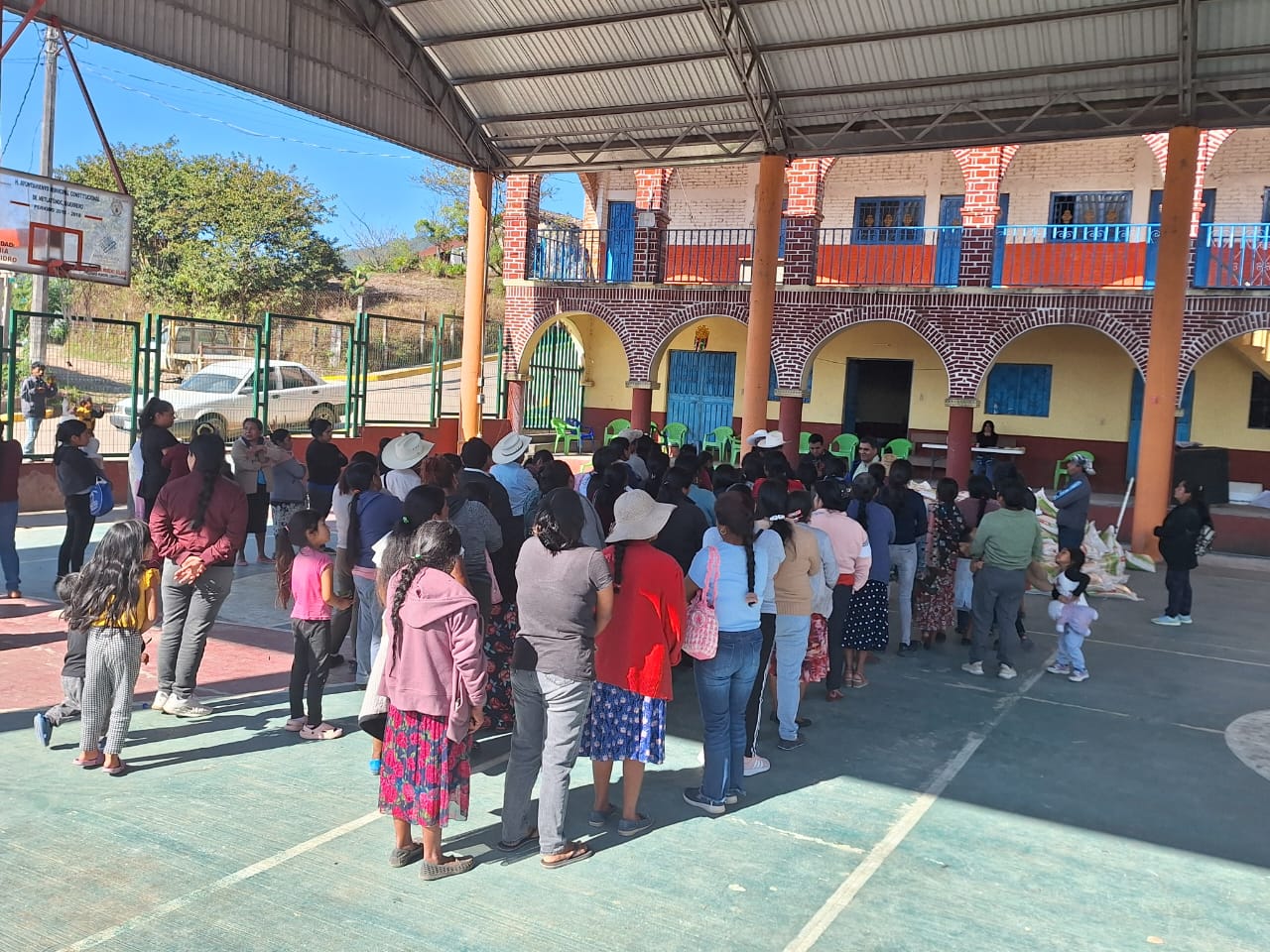
San Isidro Metlatónoc Community, Ñuu Savi (Mexico)
The San Isidro Metlatónoc community in the state of Guerrero suffered crop losses as a result of hurricane John in 2024, in addition to other damages. Their project aimed to mitigate food shortages by purchasing corn for affected families, as well as conducting a medical awareness campaign and providing care for common gastrointestinal conditions in the community.


